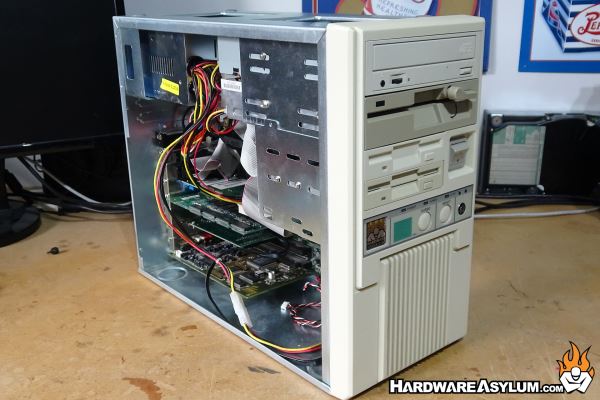Slot 1 Motherboard Testing for a Retro PC Build
Author: Dennis GarciaBenchmark Configuration
One of my first reviews was for the Freeway Design FWD-P3C4XD. This was a dual processor Socket 370 Pentium III motherboard and testing during that era was somewhat limited compared to what we see today. Reviews back then were more about “what” the reviewer felt about the system and how they solved issues they ran into. Benchmarks were one way to determine how good a product was and played a major factor in the communication back to the manufacturer.
I’ll be diving back into this old style of testing and look at these boards from a raw performance standpoint using a variety of processors and the famed SiSoft Sandra 2004 edition.
Processors
- Intel Pentium III 500
- Intel Pentium III 533B
- Intel Pentium III 533EB
- Intel Celeron 300A @ 450Mhz
GlobalWin Single Fan P328H Coolers
Motherboards
- PcChips M747
- FIC KA-6100
- A-Trend ATC-6310
- A-Trend ATC-6230
ATI 3D Rage Pro
Micron 512MB SDRAM PC133
Promise FastTrack RAID0 w/ Lexar Professional 1667x 250MB/s SDCards on IDE Adapters
Windows 98 SE
Something to keep in mind is that the Celeron 300A and Pentium II 533EB both came with an integrated L2 cache that ran at the same clock as the CPU. This was a major performance boost over the older Pentium III chips with the larger L2 cache running at half the processor speed.

Not every motherboard supported every processor in this list so, I have grouped everything together by processor and split across the various benchmarks. Given the AGP issues with the FIC KA-6100 motherboard I didn't spend much time on it.
Considering that I planned to use one of the A-Trend boards, you will notice that I included some 3DMark 2000 tests to further explore the differences. My goal there was to see if memory bandwidth played any part in gaming performance.

